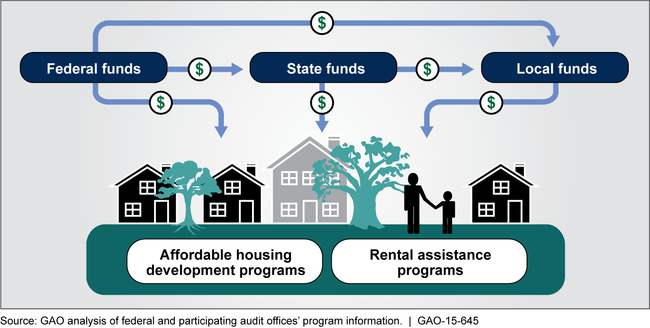Affordable and Special Needs Housing
The document titled “Affordable and Special Needs Housing Guide” serves as a comprehensive resource aimed at addressing the pressing issue of housing affordability. It outlines the challenges faced by individuals and families in securing affordable housing and provides strategies for policymakers, developers, and community organizations to enhance housing accessibility.
Further related reading: Affordable Housing Action Plan 2017-18 to 2019-20
The Urban Unit
Punjab Affordable Housing Program (PAHP)
[PDF] Punjab Affordable Housing Program | Pakistan Council of Architects … pcatp.org

Understanding Housing Affordability
Housing affordability is defined as the ability of individuals or families to secure housing without spending an excessive portion of their income. The guide emphasizes that a household should ideally spend no more than 30% of its gross income on housing costs, including rent or mortgage payments, utilities, and property taxes. Exceeding this threshold can lead to financial strain and limit access to other essential needs.
Current Challenges
The guide identifies several key challenges contributing to the housing affordability crisis:
- Rising Housing Costs: Over the past decade, housing prices have escalated significantly in many regions, outpacing wage growth. This disparity has made it increasingly difficult for low- and moderate-income families to afford suitable housing.
- Stagnant Wages: While housing costs have surged, wages for many workers have remained stagnant, exacerbating the affordability issue. This situation is particularly acute for low-income earners who are disproportionately affected by rising rents.
- Limited Supply of Affordable Housing: There is a critical shortage of affordable housing units across many markets. Factors such as zoning laws, land-use regulations, and the high cost of construction contribute to this limited supply.
- Economic Disparities: Economic inequalities further complicate access to affordable housing. Marginalized groups often face additional barriers, including discrimination in housing markets and limited access to financing.
Strategies for Improving Affordability
The guide outlines several strategies that can be employed to improve and Special Needs housing affordability:
1. Policy Reforms
- Zoning Changes: Local governments are encouraged to revise zoning regulations to allow for higher-density developments and mixed-use projects. This can help increase the supply of affordable units.
- Inclusionary Zoning: Implementing policies that require a percentage of new developments to be affordable can ensure that low-income families have access to new housing options.
- Streamlining Permitting Processes: Simplifying the approval process for new developments can reduce costs and encourage more builders to enter the market.
2. Financial Assistance Programs
- Rental Assistance: Expanding rental assistance programs can help low-income families afford their monthly payments without sacrificing other necessities.
- Down Payment Assistance: Providing financial support for first-time homebuyers can facilitate homeownership opportunities for those who might otherwise be unable to afford a down payment.
3. Community Engagement
- Public-Private Partnerships: Collaborating with private developers and non-profit organizations can lead to innovative solutions for creating affordable housing.
- Community Land Trusts: Establishing community land trusts allows communities to retain ownership of land while providing affordable housing options through long-term leases.
4. Education and Awareness
Raising awareness about available resources and educating potential homeowners about financial literacy can empower individuals to make informed decisions regarding their housing options.
Conclusion
The “Affordable and Special Needs Housing Guide” highlights the urgent need for comprehensive action to address the growing crisis of housing affordability. By understanding the multifaceted challenges involved and implementing targeted strategies, stakeholders can work together to create sustainable solutions that ensure all individuals have access to safe and affordable housing. The guide serves as a call to action for policymakers, developers, and community members alike, emphasizing that collaborative efforts are essential in tackling this complex issue. With a commitment to reforming policies, increasing financial support, and fostering community engagement, it is possible to make significant strides toward achieving greater housing affordability for all.

